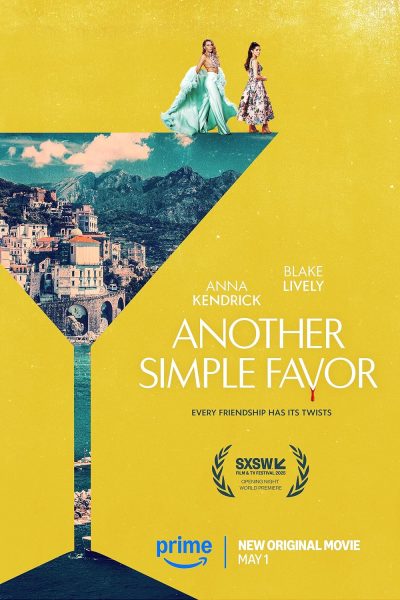Five Board Games to Kill Boredom and Enliven Quarantine
These are strange times, and many people are struggling to adjust to the new normal of social distancing. Staying occupied and entertained at home can be challenging, and board games are an enjoyable way to pass the time. Here are my top five board game suggestions, ranked. Although many stores have closed, all of these games exist as apps or can be played online. Most of them are equally (or more) fun when played virtually as when played traditionally.
- Evolution
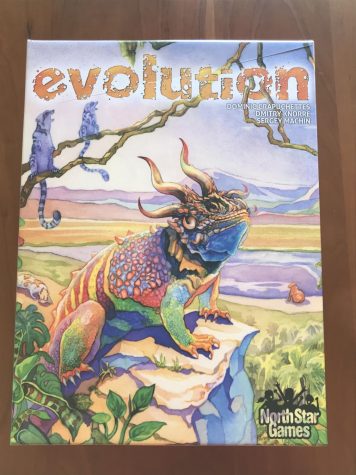
Players: 2-6
Ages: 12+
Time: 60 min.
I got this game a couple of months ago and it instantly became one of my favorites. It was ranked the #1 digital board game of 2019.
How it works: Players use cards to either create new species, give existing species traits, or increase the populations and/or body sizes of their species. The game is all about food supply. For each species, players choose to be either an herbivore, which must eat from a shared pond, or a carnivore, which can only eat other people’s species. The player with the most food at the end wins. It’s a delicate balance between having few enough species that they can all eat and be defended, but having enough that you are collecting a large amount of food.
It’s a fairly competitive game when there are carnivores involved, but the game is long enough that if you’re eaten you still have a chance of making a comeback. The game is fun because there are so many options. Each turn, you must make a number of decisions about traits and population sizes, and it’s interesting to see how different strategies play out. It’s also fun because you have to constantly react to other people’s decisions. If somebody chooses to be a carnivore, your entire strategy might change.
The game has a nice balance between strategy and luck. The cards you draw affect the success of your game to a degree, but they are not the determining factor. The game depends more on the card combinations you create, the risks you take, and your relationship to the other players.

2. Bananagrams
Players: 2+
Ages: 7+
Time: 20+ min.
This game is like a fast-paced, more dynamic version of Scrabble.
How it works: Players draw from a pool of tiles and then form and connect words as quickly as possible. If a player uses all of their letters, everyone must draw a new tile from the pool and incorporate it into their word structure. The game ends when all the tiles have been drawn. The player who uses all of their letters first is the winner.
I find Bananagrams to be more fun than Scrabble because you are constantly rearranging and recreating the words you build. If a word turns out to limit your options later on, you can change it. It’s more dynamic because new letters are constantly being drawn. Most importantly, there’s no need to wait for the other person to take their turn because players draw and go simultaneously, so it’s continuously fast-paced and entertaining.
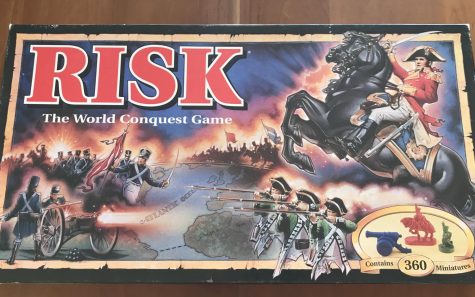
3. Risk
Players: 2-6
Age: 10+
Time: 3-8 hours
If you’re looking for a game that will last not just hours but days, Risk is a good choice. I would give it a lower rank in most other circumstances, but these are unprecedented times and many of us need something to keep us occupied.
How it works: Players are given a certain number of troops, which they take turns placing on a world map to occupy territories. At the beginning of each turn, players receive a certain number of new troops depending on which, and how many, territories they own. The goal of the game is to dominate the world by invading as many countries as possible. To invade a country, a player must roll a higher number on the dice than their opponent. If they don’t, some of their troops die.
Luck is an important part of this game, which makes it fun and unpredictable. However, the countries you decide to occupy and invade are more important. It’s a balance between playing a good defensive and offensive game at the same time. Eventually, you start to feel somewhat attached to the countries you control, and it’s devastating when they’re invaded. This game is typically more fun with a greater number of players, but it works well with two or three people too.
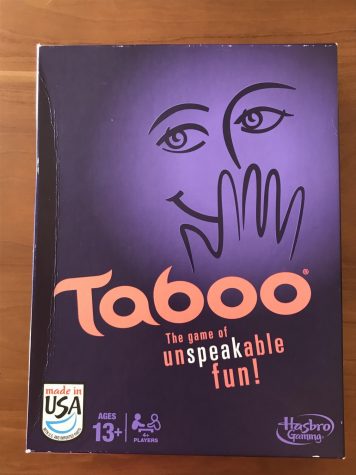
4. Taboo
Players: 4+
Ages: 13+
Time: 15+ min.
Taboo is another one of my favorites.
How it works: Players divide into pairs and take turns trying to describe and guess certain words. The player must get their partner to guess the word as quickly as possible, but without using any key words listed on the card. For example, you might have to describe the word “easter” without saying egg, bunny, holiday, or religion. It’s a race against the clock to win more points than the opposing team.
I’ve found this game to work best with people you know well because you can make secret references that nobody else understands. Taboo challenges your communication skills. A clue that seems completely obvious to one person might be equally confusing to somebody else. It’s interesting to see how people choose to describe certain words, and to see how they react when their partner isn’t understanding.
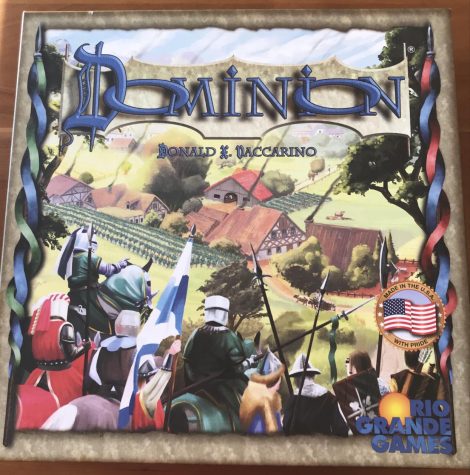
5. Dominion
Players: 2-4
Ages: 14+
Time: 30 min.
How it works: Each player starts with the same number of treasure and victory cards. Treasure cards are used to buy action cards. Action cards give players extra buying power or allow them to draw extra cards. The more action cards are linked together, the more powerful they become. If a player can accumulate enough wealth in a single turn, they can purchase more powerful action cards. The ultimate goal of the game is to collect as many victory cards as possible. The game ends when the victory cards run out.
Unlike many games, Dominion becomes more fun the longer it goes on because the card combinations grow more complex. Similar to Evolution, it’s enjoyable because there are so many choices. Strategies can vary greatly from game to game, and it’s largely about timing. It’s difficult to know whether to prioritize action or treasure cards. It’s also difficult to know when to begin buying victory cards. If you buy them too soon, they’ll clog up your hand and make it harder to buy more. On the other hand, if you wait too long there might not be enough. It’s a game that’s fun to play multiple times because you learn from past mistakes and want to adjust your strategy a bit each time.
Everybody enjoys different types of games, but if you’re bored I recommend giving these ones a try. I would caution against games like Parcheesi or Monopoly. In my experience, Parcheesi leads to anger and rivalry much more often than it leads to happiness. Monopoly is fun at first, but if you’re forced to stay at somebody’s hotel it’s nearly impossible to make a comeback and win. Not that life is all about winning, of course. But it’s more fun when you’ve at least got a shot.

Hello! I'm a Senior at Hellgate and this is my second year writing for the Lance. In addition to writing, I enjoy mountain biking, playing cello, and competing...


